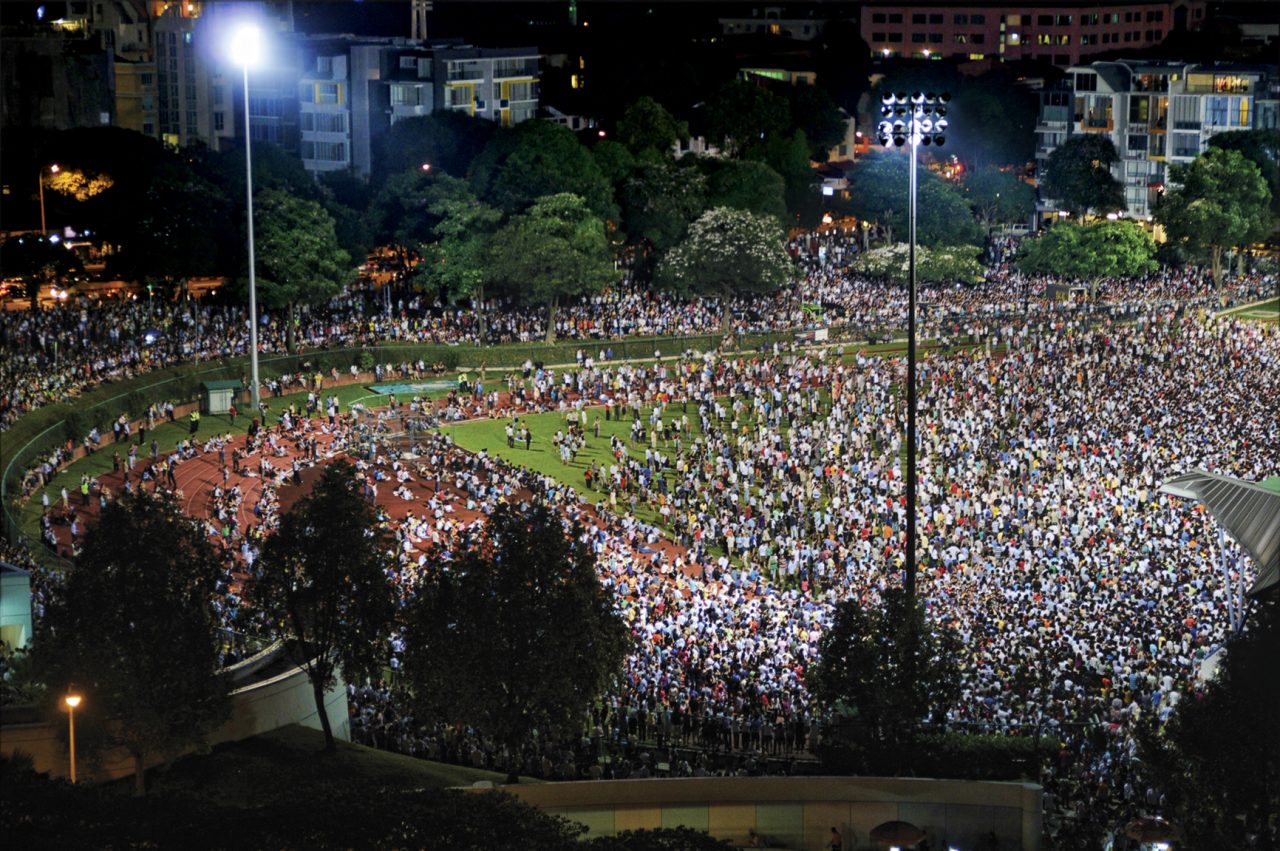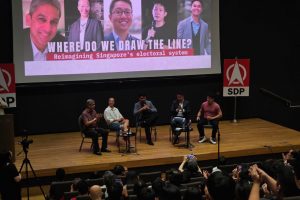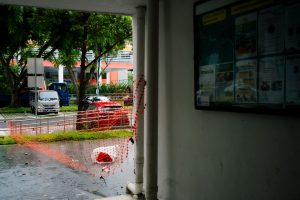Disclaimer: RICE does not support or endorse any political party in Singapore.
Despite the discomforts, like thousands of others gathered at these fields, we stayed on into the night to listen. Some of us were there for the jokes, rebuttals, and jibes, but most of us were there because of the promises. We are, by nature, creatures of hope, and as tens of thousands cheered and jeered in unison, we wanted to believe.
At these rallies, election promises (or pressure placed on other parties) are what they are—words loud-speakered or shouted exuberantly in a highly charged atmosphere. That is, until the party wins a constituency, or the majority, then it becomes a hard reality to deliver the swankiest five-year report card to voters before the next election.
For us voters, it will be tempting to lap up GE2020 promises (eg. Covid-19 recovery, job security, economy turnaround, etc.), but history has a way of telling us whether promises are to be believed, or taken with a pinch of salt.
So, it doesn’t hurt to review the past two elections, to understand whether the parties voted into Parliament have met those promises or pressured others convincingly to effect change for us voters.
Spring-cleaning the House
In one of his GE2015 rally speeches, PAP’s Lee Hsien Loong talked about having a ‘clean’ system, alluding to a key message former Minister Mentor Lee Kuan Yew said during his 90th birthday.
He further stressed that for politics to work, the government needs good people. People whose hearts are in the right place. He reminded opposition MPs to do the same, even at the town council level. This was further emphasised by DPM Heng Swee Keat as recent as November 2019 in parliament.
While we follow the Workers’ Party’s ongoing AHTC case, verdict and appeal, we should also not forget the controversy surrounding the Town Council software award to sole bidder AIM in 2010 (which was later re-tendered and awarded to NEC in 2013 after a government review). Subsequently, in 2014, MOF directed the Auditor-General’s Office to audit AHPETC’s FY 2012-13 accounts, which later led to the AHTC case.
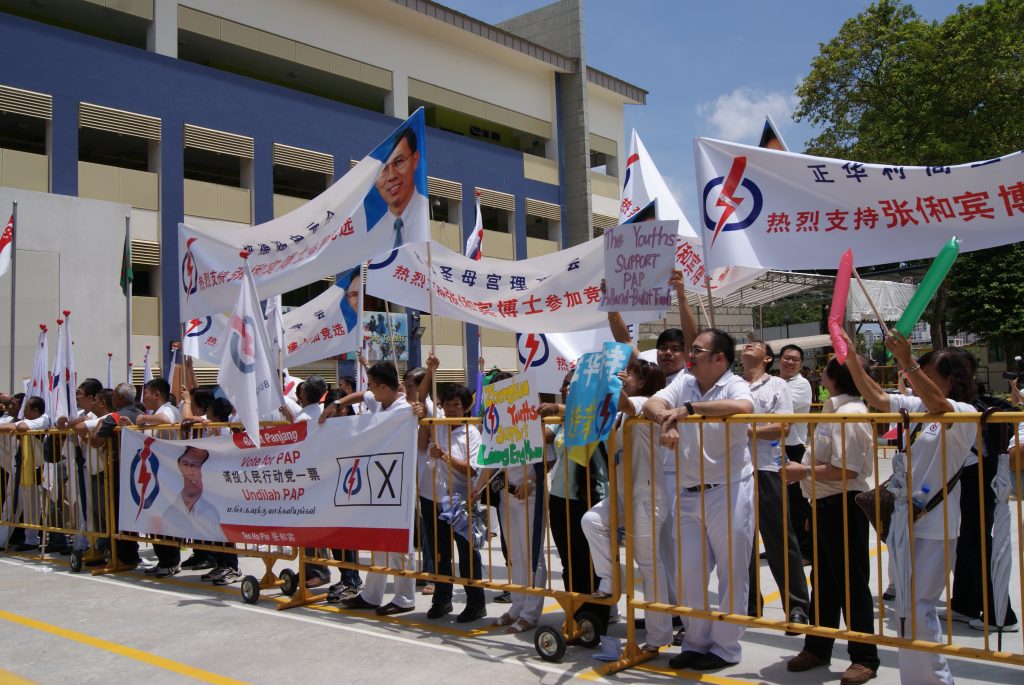
The silver lining from that promise? From April 2020, all Town Councils needed to abide by a code of governance, and from September 2021, submit a checklist to the Ministry of National Development.
Of course, ‘clean’ isn’t just restricted to systems, but also individuals, especially when it comes to morality and the accountability of office holders in Parliament and the government.
Over the past two elections, we’ve seen the exit of 3 MPs due to alleged extramarital affairs: WP Hougang’s Yaw Shin Leong and PAP Punggol East’s Michael Palmer in 2012, then PAP Bukit Batok’s David Ong in 2016 (two of which triggered by-elections). Let’s not forget the corruption case of a former Ang Mo Kio Town Council GM in 2018 as well.
So, thanks to events after GE2011, voters are now better familiarised with what a clean system means, particularly in town council management and representation.
This mindset to hold the system and office holders accountable has emboldened voters to be publicly critical, especially when it comes to policy-making that affects citizens. We saw some of this played out during the reserved Presidential Election, and more recently, when voters voiced their opinions before the first ballot was even cast.
Promise kept? Yes, but it sure took awhile for the code of governance to show up. Candidates-wise, it’s still a Work-in-Progress.
Pa, Did Mummy Slap You?
In GE2011, WP’s then chief Low Thia Khiang related an anecdote about why supporters should vote for the opposition. He reminded the incumbent party that while the opposition serves to act as a ‘co-driver’ in the vehicle, the co-driver is there to slap the driver when he drives off-course, falls asleep, or drives dangerously.
“If the driver is friendly, drives responsibly, then (we’ll) just keep talking to him, to keep him awake,” he said.
Having won and retained Aljunied GRC and Hougang SMC since GE2011, the question remains: has the Workers’ Party done enough slapping or talking (to keep the driver awake)?
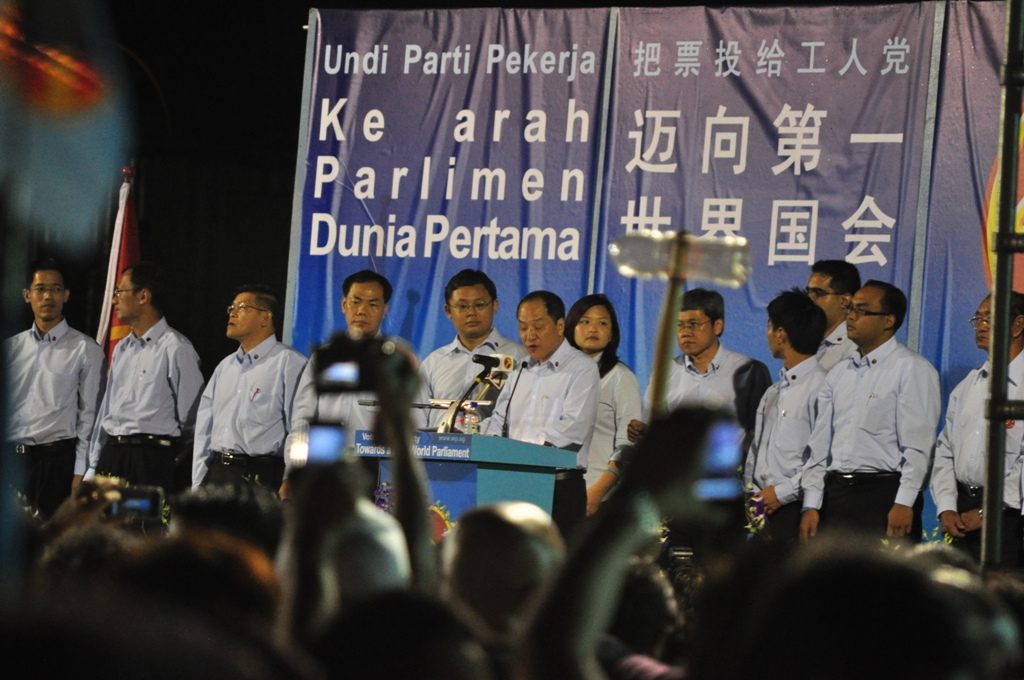
We’ve seen the debates, such as the reserved Presidential Election, objections to POFMA, policy shifts, the proposal for a universal healthcare package, and the Keppel Offshore & Marine Ltd corruption case.
In fact, I was expecting more debates on why our real GDP growth in 2019 (pre-Covid) was a mere 0.7% (our lowest in 10 years), or whether it made sense to spend S$16.3m for Trump and Jong Un to “shake hands and sight-see”, or whether, say, a code of governance for migrant worker dorm operators, should have been put in place earlier.
But, for the most part, the WP MPs (and the opposition NCMPs) have been active both in attending and speaking out, by raising questions and proposing ideas in Parliament, which indirectly help us become far more aware of the PAP’s position when they respond.
In his GE2011 rally speech, Low further said, “without a co-driver, Singaporeans keep getting taken for a ride … one day, the potential co-driver can have the driving license to take over (the wheel), if and when, necessary.”
With the current way GE2020 has been set up, despite provisions for up to 12 opposition MPs or NCMPs (if they’re the highest losers), once the PAP wins a majority or supermajority in Parliament, the opposition can only question and vote on amendments to existing legislation or newly proposed bills, but fall short of stopping the majority from passing them.
We’ve seen examples, from the reserved Presidential Election to POFMA, and sometimes, the reverse, such as when NMPs’ proposed amendments to POFMA were rejected.
Yes, WP’s pre-election promise to ‘slap’ and ‘talk to the driver to keep him awake’ seems to work, but they are definitely still far off from ‘taking over the steering wheel’.
For this scenario to happen, a better anecdote would be a husband-and-wife scenario. Key issues affecting the households can be argued with intellect, experience and mutual respect.
But more importantly, either party can bring a fresh level of empathy, perspective, and heart to the discussion—if both have equal rights—to decide what’s best for their children (ie. us) and the future of their home (our country).
So, promise kept? Yes, with lots of co-driver chit-chat. But, if there’s a wipeout of the opposition in GE2020, it’ll be backseat passenger chit-chat (so, not all things might get heard and very little eye contact).
My Basket of Goods Is More Expensive
In a GE2015 press conference, PAP’s Lee explained that getting a strong mandate doesn’t mean the government will raise taxes. Taxes like GST might only be raised when there’s profligate spending and irresponsible or unsustainable plans.
He criticised opposition manifestos proposing that money be given to the young and old, a minimum wage, or taxing the wealthy. If the government has to raise taxes like GST, he said, it would explain and justify it, or pay the price in the next election (which just happens to be now).

Two and half years later during Budget 2018, to support spending on healthcare, infrastructure, and security, Finance Minister Heng Swee Keat presented justifications to raise GST from 7% to 9% sometime between 2021 and 2025. He “expected that the government would need to do so earlier rather than later”. This timeline was later extended by at least another year in Budget 2020 due to Covid-19.
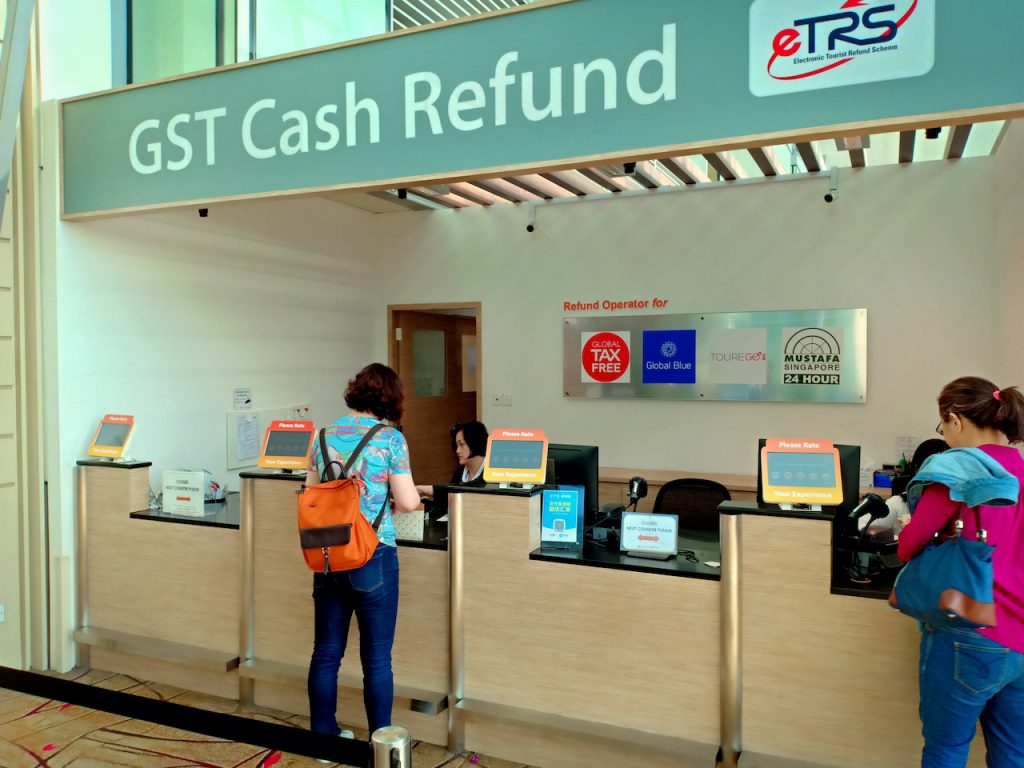
Depending on how quickly we recover from this pandemic, it goes without saying that GST is likely to rise by 2% within the next 5 years—we just don’t know exactly when.
The larger question then, with S$193b allocated across 4 Budgets, including S$93b to combat Covid-19, how will the government narrow its fiscal deficit once the crisis is over? If there is a plan, will details be shared with us? Over how many years?
While most of us will be bogged down by immediate concerns from the crisis, we must remember that the next government is here to stay for 5 years or longer. It is definitely in the interest of voters—financially, socially, and for the sake of the next generation—that they have a clear answer on this, preferably “earlier rather than later”.
Promise kept? Well, yes, GST will definitely be raised, and the government did justify it. However, in light of the government’s Covid-19 budget response, GST alone won’t be enough to narrow Singapore’s fiscal deficit.
Pa, How Come the Floor is So Low?
In GE2011, PAP’s Lee talked about attracting new investments to make Singapore more competitive, including helping low-income workers like sweepers, cleaners, security guards, drivers, and cooks. He referenced Devan Nair Institute of Employment and Employability to help low-income workers to upgrade (with help from NTUC).
This was further echoed by former Minister of Labour Lim Swee Say in GE2015, who discounted the opposition’s call to implement a minimum wage, recommending the progressive wage model instead.
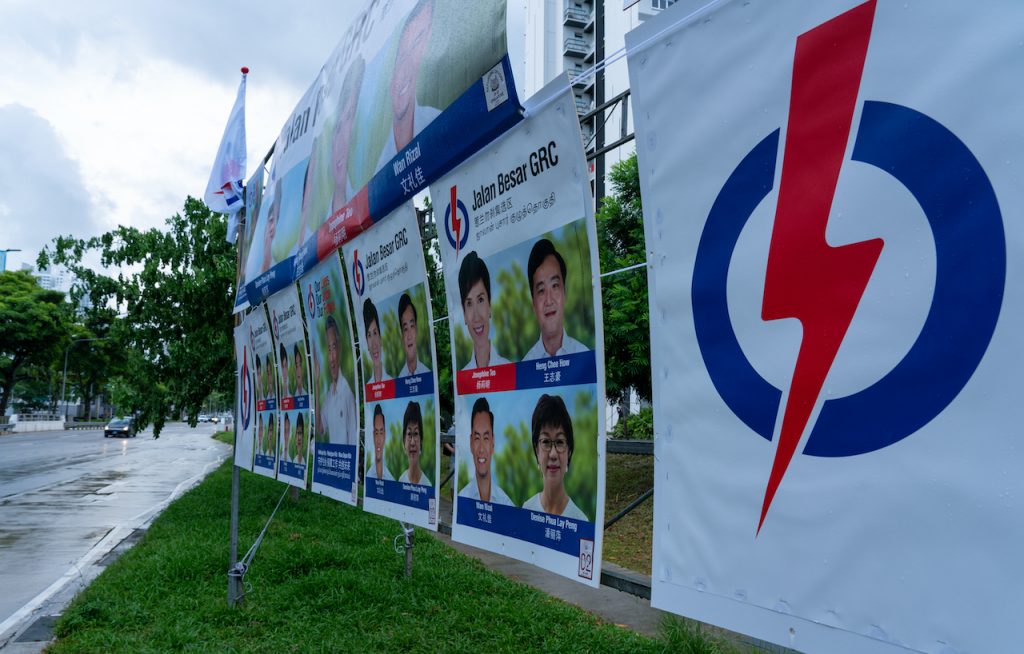
Still, despite 3.0-4.8% in real GDP growth and a 30% wage increase for cleaners, security officers, and landscape workers between 2013 and 2018, their base salary has always been low (ie. at the bottom of the 5th percentile of the resident workforce in terms of gross monthly salary).
In a blog post on 1 June 2020, Labour MP and NTUC Assistant Secretary-General Zainal Sapari shared that the monthly basic pay of a general cleaner is about S$1,236 and private security officer’s is around S$1,250. This is based on the Progressive Wage Model.
“… in times of economic prosperity, these workers seldom get to feel the same prosperity that others are enjoying through higher increments or bonuses. Even in good times, their employers are constrained by fixed-contract prices which are secured through competitive bidding and always at the expense of better benefits for these non-bullsh*t workers,” he explained, referencing David Graeber’s book, Bullshit Jobs: A Theory.
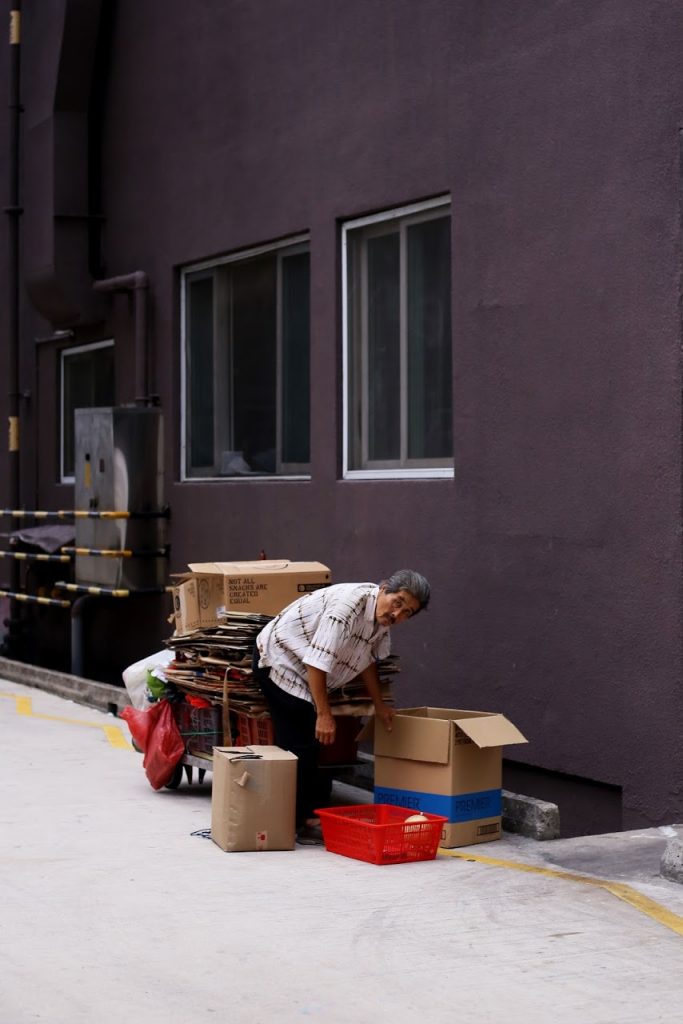
Covid-19 has brought the plight of low-wage and essential workers to the fore. So, yes, while there have been some adjustments from promises made in GE2011 and GE2015, the needle (eg. policies set in Parliament) needs to move much, much more.
Promise kept? Not as much as we would have liked. More can be done. Hopefully soon.
Who’s Putting Food On Your Table? Shut Up and Eat!
Another major talking point during GE2011 was ministerial salaries. During GE2011, WP’s Sylvia Lim asked if pegging minister’s salaries to two-thirds of the average of the top 48 earners in Singapore was valid. She suggested that salaries should be benchmarked with political holders in other countries like Finland, Norway, Denmark, and New Zealand.
Two weeks after GE2011, PAP’s Lee announced the formation of a committee to review political salaries. Recommendations to cut salaries by 37% were shared in 2012.
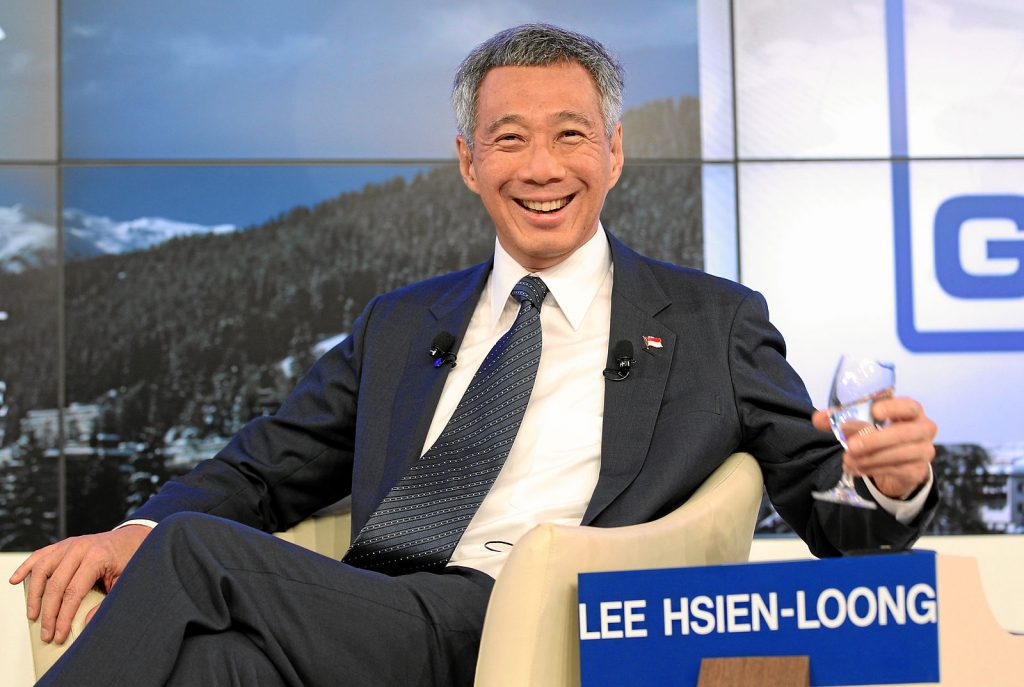
This became a topic of much heated debate again in 2018, when Emeritus Senior Minister Goh Chok Tong broached the subject in response to a resident’s query. This was later clarified and made transparent by Deputy Prime Minister Teo Chee Hean in Parliament, where he shared that a 9% benchmark salary increase recommendation from a 2017 review was declined.
Since 2012, an entry-level (MR4) minister gets an annual salary of roughly S$1.1m, based on a 40% discount to the market reference.
It goes without saying, in light of WP’s pre-election query and the setup of the committee, our ministers’ salaries, though lower than pre-2012 times, are still the highest among other political leaders in the world, so much so, that it has attracted colourful comparisons.
Promise kept? Not at all. Salaries of Singapore ministers are still much higher than leaders in Finland, Norway, Denmark and New Zealand. In fact, in 2012, the WP proposed a slightly different formula for ministerial pay, which would result in roughly the same pay as the 2012 recommendation.
Pa, Can Our Ceiling Be Higher?
In GE2011, PAP’s Lee admitted that after the recession in 2009, the demand for HDB flats rose and prices increased. On the congestion in public transport, he alluded to more foreign workers coming into Singapore, because they were filling jobs to support investments and projects.
He apologized for not predicting these earlier, but promised to build more flats (at a rate of 22,000 flats a year) and open one new MRT line (or ext. line) every year for the next 7 years.
Meanwhile, WP’s Low echoed the angst of HDB flat buyers at the time, citing housing as a financial burden to young Singaporeans, leaving them with very little savings for their old age.
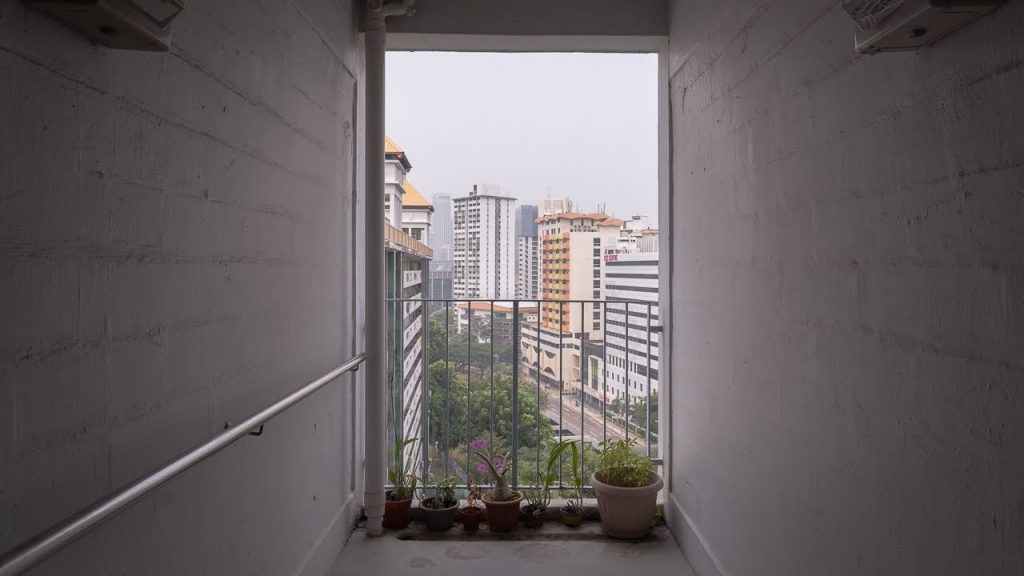
During GE2015, PAP’s Lee shared that the government had launched 100,000 new HDB flats and increased housing grants for affordability, especially for low-income groups.
He further shared that with an income of S$1000 a month, a Singaporean can buy a HDB 2-room flat, just with CPF, no cash. He also promised an increase of the household income limit to buy a HDB flat and EC.
More recently, the income ceiling was further raised from S$12k to S$14k for BTO flats, S$14k to S$16k for ECs and S$6k to S$7k for singles aged 35 and above.
While access to public housing and public transportation has improved, rising EC and private property prices, increased water prices, higher transport fares, rising healthcare costs and overcrowding remain pertinent issues.
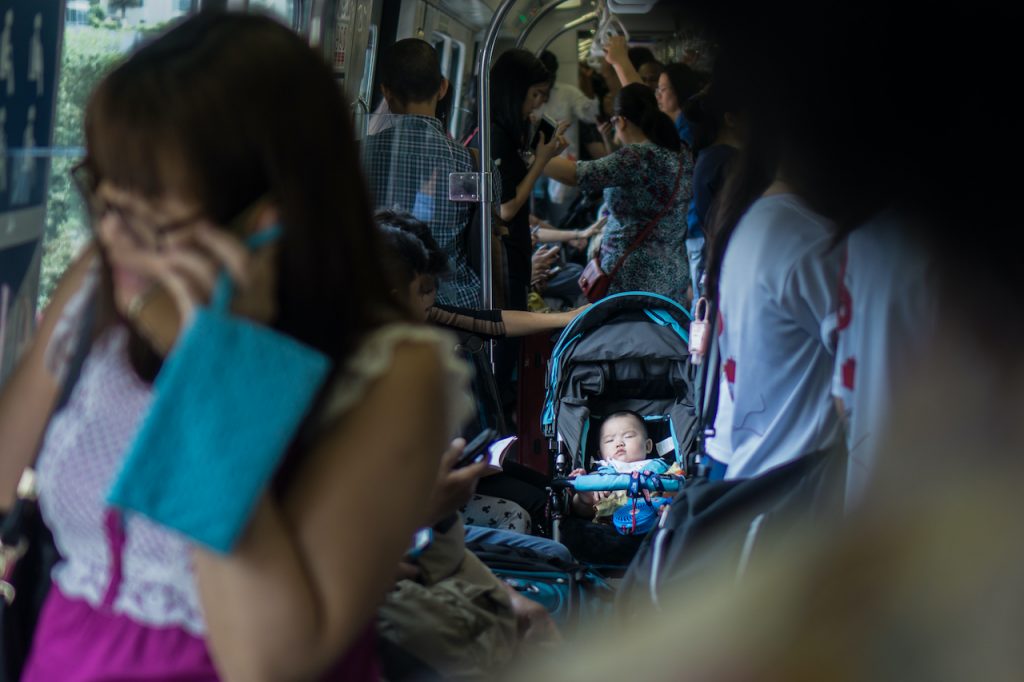
Based on more recent sentiments, like who should bear the burden of public transportation costs, or allowing Singaporeans to use more of their CPF savings to buy older flats, the short-term seems to outweigh the long-term, at least for the moment.
This also means more debt or locked savings to “lease” a home for 99 years or less, and losing both savings and home, once the lease expires. Then, there’s this other concern over retirement savings …
Promises kept? For public housing, yes. For easing congestion in transportation, it can be better. For other costs? It depends on which demographic you fall into (and whether those grants and rebates were helpful at all). For retirement? Don’t get me started.
—
Back in 2011, the government admitted that it did not ride the recovery curve after the Global Financial Crisis fast enough, so the surge in demand for public housing and transportation came as a surprise. It tried to make amends for this by GE2015.
Considering GE2020 is held in the midst of a pandemic, the question then is whether every elected MP is ready on two key fronts: one, work for his or her constituency to take Singapore out of this current crisis, and two, ensure his or her constituents are ready to ride the recovery curve when the turnaround suddenly comes, without sidelining the vulnerable, low-income group and marginalised.
More importantly, with an increasingly vocal voter demographic and newer, younger voters all too willing to dig up the past in 5 years’ time, elected MPs should stay abreast of things and maintain a checklist for themselves.
Because, whatever is said or promised to constituents in this election by a party candidate, be it under the wing of a parachuted star candidate in a GRC, or on his or her own in an SMC, they must have something to show in the end or be held accountable come GE2025.
This GE, we’re not just interested in the winners and losers. Join RICE as we satirise, over-analyse, and dissect everything from how we talk about politics and politicians to what we think we know about how Singaporeans vote.
Have a lead for a GE related story? Send it to community@ricemedia.co.

